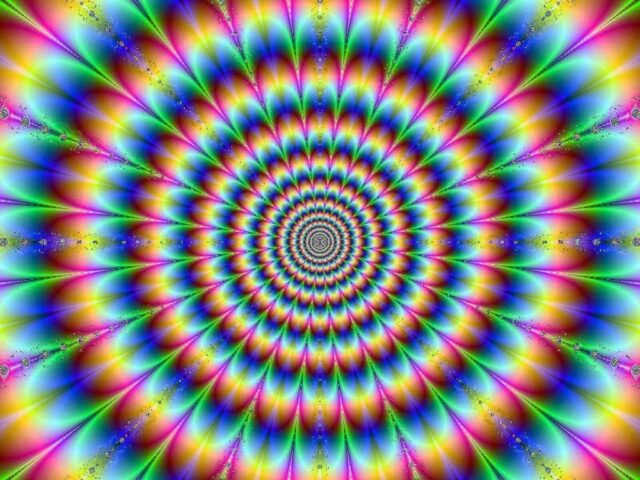The Hypnosis Controversy: What Science Has to Say
Hypnosis . . . (not to be confused with the food coma you may experience on Thanksgiving). Just reading the word aloud to a group divides them into those who believe it exists, and those who insist the concept is a bunch of hooey.
Whether or not one believes in hypnosis, the mere mentioning of the word instantly conjures up images of men squawking like chickens at the snap of the hypnotist’s fingers, or a mesmerized patient revealing their deepest, most hidden secrets. Perhaps the most well known “symptom” of hypnosis, as portrayed in modern pop culture like movies, cartoons and television shows, is the zombie-like empty stare through glazed eyes. A recent effort from a large group of researchers has shown that this glazed stare could actually be proof of a hypnotic state being possible.
Details of the Study
The study, which was published in the online journal PLoS ONE, was a combined effort of several groups of researchers from the University of Turku and Aalto University in Finland, and the University of Skövde in Sweden. For the study, very highly hypnotizable participants (who could be hypnotized and de-hypnotized with one-word cues) were used. The ease of hypnosis enabled the subjects to switch between a hypnotic state and a normal state in just seconds.
Using high resolution, highly sensitive eye tracking technology, the researchers presented a set of well established, widely accepted oculomotor tasks that trigger automatic eye behavior. These tasks had vastly different results for the hypnotic state compared to the normal state. Automatic reflexes and behaviors in the eyes that could not be imitated by conscious humans had measurable changes in the tests.
The results of the study could have large consequences for psychology and cognitive neuroscience. It provides the first evidence of the existence of a conscious state of mind in humans that, before now, has not been scientifically confirmed.
Is the Controversy Over?
For over 100 years, hypnosis was a controversial topic in the fields of psychology, neurology and psychiatry. Skeptics argue that hypnosis is just a magic trick, and have debated over the existence of a hypnotic state. Because evidence of a true hypnotic state has never been presented, many researchers and officials in the neuroscience fields still believe the hypnotic state to be a myth.
However, this study’s results could help shed some light on a new conscious state in humans, and thus pave the way for hypnosis to gain credibility in the science community.
This article can now be found here: https://themetabolicloophole.squarespace.com/blog/2014/12/3/hypnosis-what-does-science-say
Insider’s Health Exclusive –>>: Click Here to Find out The ONE “Weird Trick” that reduces your terminal disease risk by OVER 70% (and NONE of us are doing it)








